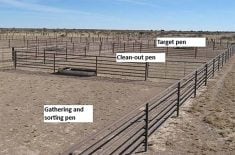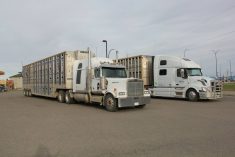KANSAS CITY, Mo. — More food corporations are raising the ante when it comes to improved animal welfare practices.
Last April, Darden Restaurants, which serves more than a million meals a day, released an animal welfare policy that it believes is based on sustainability and ethical business management.
“The way people treat animals today is a bit different than a generation ago,” said Paige Hartley of Darden Restaurants, which includes outlets like the Olive Garden and Longhorn Restaurant.
The group has 800 restaurants in the United States and franchise partners around the world.
Read Also

Lending policy still focused on primary producers: Farm Credit Canada
Farm Credit Canada said it has not changed its business practices and remains committed to supporting all producers, after a report from an Ottawa-based media outlet claimed otherwise.
Day cares for dogs, pet birthday parties, bakeries catering to pet food and pet-friendly restaurants are more in demand, she said at the North American Meat Institute animal care and handling conference held in Kansas City.
Consumer research indicates customers want more information about where their food came from and how it was raised. They value corporate responsibility where animals and employees are well treated.
“Animal welfare has become a case of better for me and better for the world for the majority of consumers,” she said.
Darden Restaurants is one of the original members of the United States roundtable for sustainable beef. Many of its new policies follow the round table’s specifications on fair labour practices, proven environmental, health and safety practices, animal welfare and sustainability.
Company research found more than 70 percent of consumers say it is important the company avoids inhumane treatment of animals, as well as antibiotics and added hormones.
The corporate policy is to work with suppliers and its animal welfare advisory council to ensure continuous improvements in animal welfare outcomes by 2025. This includes requirements that fall under humane housing, avoidance of pain, humane slaughter practices, transportation and responsible use of antibiotics.
Suppliers must have third party audits to prove they are following the new policies.
It wants chicken raised without the use of medically important antibiotics by 2023. All eggs must come from cage-free housing systems.
Pork must come from sow-crate-free farms.
Beef is sourced from the United States and additional supplies come from Australia. Sustainable practices must be followed and steps taken to reduce the environmental impacts of beef production.
In addition, the company has taken restaurant staff on farm tours so they can learn more about agriculture and where the food they prepare comes from.
















